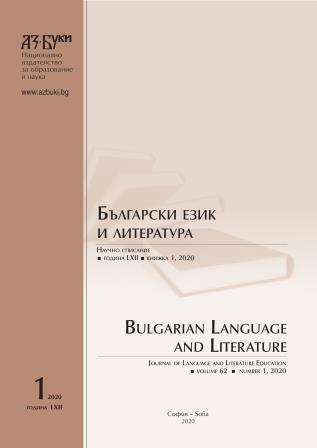Напрежението между маскулинизмите и феминативите в езика на политическата коректност
The Tension between Masculine and Feminine Nouns in the Language of Political Correctness
Author(s): Andreana EftimovaSubject(s): Social Sciences, Language studies, Language and Literature Studies, Education, Theoretical Linguistics, Applied Linguistics, School education, Vocational Education, Adult Education, Higher Education , Philology, Inclusive Education / Inclusion
Published by: Национално издателство за образование и наука „Аз-буки“
Keywords: masculine nouns; feminine nouns; political correctness; media speech
Summary/Abstract: Masculinization is spread in many languages because masculine names (masculinisms) are considered more prestigious in naming professions, activities, social status. It is therefore curious that masculine nouns are not perceived as politically correct names. Female names for the professional occupation of women in the media and in general speech-based practice often appear in a woman’s discrediting and discriminatory context that affirms their stylistic pejorative affiliation. However, they are preferred as politically correct nominations. Language reforms to create a culturally sensitive language recommend feminine nouns as non-discriminatory in terms of gender and as a mechanism for restoring gender equality in society. Based on the analysis of media texts, the article shows that the euphemistic use of masculinisms is the cause of preference for them. The ironic and negligent connotations of the feminatives tend to be avoided in speech practice.
Journal: Български език и литература
- Issue Year: 62/2020
- Issue No: 1
- Page Range: 19- 36
- Page Count: 17
- Language: Bulgarian
- Content File-PDF

